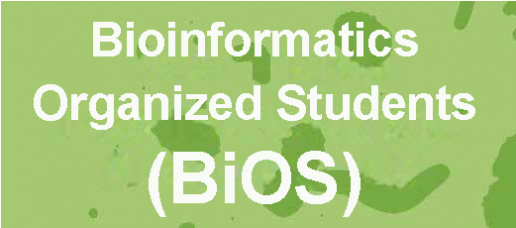Fall 2022 Student Seminars
December 14
Muzamil Khan
Advisor: Stefano Monti
Title: Exploring the cellular heterogeneity of carcinogen-induced oral tumors in mice via targeted therapy
Ab
November 30
Devlin Moyer
Advisor: Juan Fuxman Bass & Daniel Segrè
Title: Using Expression Data To Make Context-Specific Metabolic Models
Ab
November 16
Anastasia Leshchyk
Advisors: Stefano Monti & Paola Sebastiani
Title & Abstract: TBA
Mengze (Vanessa) Li
Advisor: Stefano Monti
Title: Gene expression signatures of aging and extreme human longevity using data from Long Life Family Study
Ab
November 2
Ahmed Youssef
Advisors: Andrew Emili & Mark Crovella
Title: SCEP: Separating Cell Contributions in Bulk Proteomics
Ab
Jing Zhang
Advisor: Daniel Segrè
Title: Establishing metrics of microbial interaction inference for community dynamics simulation using exometabolomics-trained consumer resource models
Abstract: TBA
October 19
Jacquelyn Turcinovic
Advisor: John Connor
Title: Transcriptional markers of disease in survival models of ebolavirus infection in nonhuman primates
Abstract:
Transcriptional analysis of circulating immune cells following filovirus infection has defined a temporal staging of the host response to infection. In animal models of fatal infection, there are three distinct phases of the host response. An innate immune response is evident in circulating immune cells prior to prodrome symptoms such as fever, followed by the appearance of cytokines and chemokines and finally a transcriptional signature of neutrophilia. Less information is known about the immune response in models of filovirus infection that show some level of survival. To examine the differences in response, we investigated the transcriptional response to both Taï forest ebolavirus (TAFV) and Bombali ebolavirus (BOMV) challenge in cynomolgus macaques.
Both survivors and fatal cases show a strong early up-regulation innate immune transcripts at the time of viremia and symptom onset. ISG expression remained high until death in fatal cases of TAFV infection but resolved to near-baseline levels in both TAFV and BOMV survivors. Cytokines, including IL6, and neutrophil markers increase until death in fatal TAFV cases, but we see little to no involvement from these pathways during BOMV and TAFV survivors’ disease course. These studies highlight that non-fatal infection shares many similarities with the fatal immune response at early times of infection, but that differences in the cytokine profile and appearance of neutrophils distinguishes fatal from non-fatal infection.
October 5
Conor Shea
Advisors: Marc Lenburg & Avrum Spira
Title: Epithelial, stromal, and immune changes associated with lung squamous premalignant lesion severity identified by single-cell RNA-seq
Ab
Michael Silverstein
Advisors: Daniel Segrè and Jennifer Bhatnagar
Title: Soil microbiome engineering for climate change mitigation
Abstract:
Climate change continues to threaten the stability of the biosphere, increasing the demand for mitigation strategies. One exciting opportunity is soil microbiome engineering, i.e., the use of a microbial inoculum to induce enduring, stable modifications to a natural soil microbial community and the ecosystem functions it regulates. While environmental microbiome engineering has existed for at least a century, the properties underlying this process and strategies for maximizing its efficacy are yet to be uncovered. Here, I will discuss how more complex environments are more susceptible to microbiome engineering (a property) and how directed evolution of microbial communities can be used to design optimal microbial inocula (a strategy).
September 21
Nicholas O’Neill
Advisor: Joe Zaia
Title & Abstract: TBA
Howard Fan
Advisor: W. Evan Johnson
Title: Batch Effect Correction of Metagenomic Data and its Effectiveness in Improving Microbiome Studies
Ab
Spring 2022
Fall 2021




